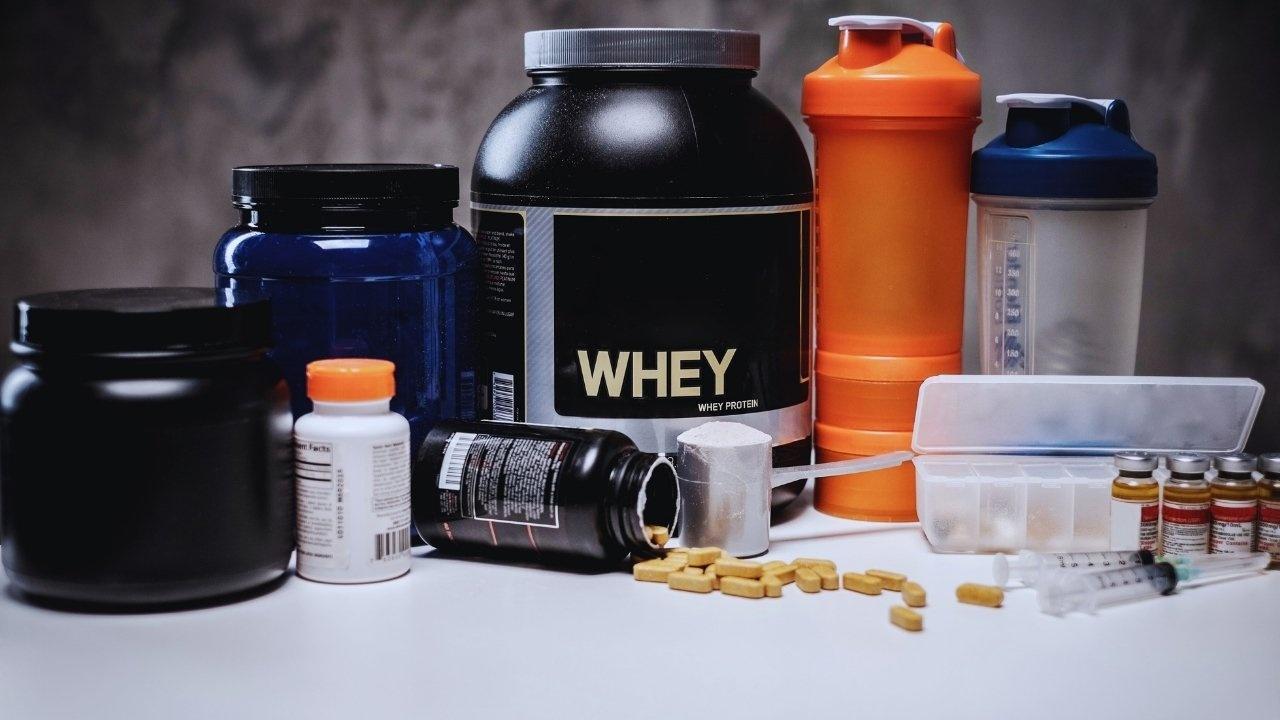You have not yet added any article to your bookmarks!

Join 10k+ people to get notified about new posts, news and tips.
Do not worry we don't spam!

Post by : Anis Farhan
In 2025, shelves in supermarkets, pharmacies, and online wellness sites overflow with supplements claiming to enhance immunity, focus, skin health, weight loss, digestion, and sleep. The supplement industry has emerged as a lucrative sector, with its popularity only increasing.
Consumers view supplements as convenient tools to fill nutritional voids and boost energy amidst busy lifestyles, irregular meals, and heightened stress levels.
However, this booming market also leads to confusion. While some supplements are backed by research, many rely heavily on marketing rather than genuine efficacy. Differentiating between what is beneficial and what is merely hype is crucial.
Using supplements wisely entails recognizing that they can be powerful—when applied correctly and for the right reasons.
Today’s hectic lifestyle has resulted in increased dependence on dietary supplements. Long hours at work, shifted meal schedules, fast food reliance, and insufficient sleep lead to nutritional deficiencies.
Supplements often appear as an easy fix, offering reach toward well-being without the effort of lifestyle changes. For instance, individuals lacking vitamin D from limited sun exposure might turn to pills, or someone facing gut issues might explore probiotics. However, these gaps can often be addressed through improved dietary choices and habits.
Ultimately, supplements should complement a healthy lifestyle—not substitute it.
A common misunderstanding is equating supplements with medications. Unlike medicines that target specific health conditions and are subject to strict regulations, supplements are designed to support nutritional needs.
They are not cures.
They don’t provide instant results.
They should not replace professional medical advice.
Supplements only address deficiencies when they genuinely exist. If an individual’s diet sufficiently fulfills their nutritional requirements, additional supplements won’t enhance health.
Understanding personal health needs is paramount to identifying what supplements are worthwhile and which are unnecessary.
Some supplements possess substantial scientific backing. When utilized appropriately, they can provide tangible benefits.
Many indoor-dwellers suffer from vitamin D deficiencies. Supplementation can enhance bone health, mood stability, and immune function.
Omega-3 fatty acids contribute to heart health, brain function, and inflammation response. Individuals who lack oily fish in their diet may find supplementation beneficial.
Those following vegetarian or vegan diets or facing absorption issues often require B12 supplements, vital for energy production and red blood cell formation.
Iron supplements are effective for individuals diagnosed with low hemoglobin and confirmed iron deficiency, though indiscriminate usage is discouraged.
Probiotics can support gut health following dietary disruptions, antibiotic treatments, or digestive imbalances, offering advantages for some but not necessary for all.
Magnesium aids in muscle relaxation, sleep quality, and stress management. It often proves helpful for individuals with chaotic diets or high-stress lifestyles.
Calcium supplements are crucial for bone health, particularly for individuals lacking sufficient dietary sources, such as older adults.
Protein powders can benefit those struggling to meet their protein needs through diet—be it due to rigorous training, vegetarianism, or aging.
These supplements offer value by addressing tangible deficiencies or supporting diets that may not meet daily needs.
For every effective supplement, many depend more on clever marketing than tangible results.
The body naturally detoxifies itself through organs like the liver and kidneys; detox pills often promote mere water loss instead of actual detoxification.
Many fat-burner supplements overstate their efficacy. Real weight loss hinges primarily on one’s lifestyle, not on pills.
Collagen is broken down during the digestion process, making it unlikely that consuming it leads to noticeable skin improvements. Dietary factors contribute far more.
While packed with micronutrients, superfood powders carry a hefty price. Whole foods generally yield equivalent benefits at a much lower cost and better absorption rates.
Many brain-boosting supplements exaggerate their capabilities; without a medical need, most fail to significantly enhance memory or focus.
Instant immunity boosters are more of a marketing gimmick. Authentic immunity is achieved through a balanced lifestyle and nutrition—not a single dose.
While these products may provide minor benefits, they often fall short of their marketed promises.
The supplement sector thrives on powerful marketing tactics. Common phrases include:
“Clinically proven” — Often based on limited or unrelated studies.
“Instant results” — Misleading as supplements typically don’t work instantly.
“Natural” — Not always synonymous with safety; several natural substances can be potent.
“Doctor-formulated” — It may be true but doesn't assure effectiveness.
“Metabolism booster” — An unclear claim lacking scientific clarity.
Grasping these terms enables consumers to sidestep impulsive buying motivated by exaggerated claims.
Many believe that higher dosages lead to better results. However, vitamins and minerals have thresholds; excess amounts can cause discomfort, interact with medications, or provoke new health challenges.
For instance:
Excessive vitamin D can disrupt calcium balance.
High intake of B6 may result in nerve complications.
Surplus iron can be hazardous and should be avoided unless necessary.
Taking multiple overlapping supplements heightens the risk of excess dosing.
More is not always better—what the body truly requires is just enough.
No supplement can substitute the diversity and richness of real foods. Whole foods offer fibre, enzymes, antioxidants, and phytonutrients that supplements cannot replicate entirely.
A well-rounded diet promotes digestion, energy levels, mood stability, and immunity more effectively than supplements alone. Use supplements as aids—not as foundational nutrition.
The simplest way to identify supplement needs is through:
Choose supplements based on solid evidence rather than trends.
The fitness realm fosters its own supplement culture, where some truly assist, while others rely on superficial promises.
Valuable fitness supplements include:
protein powders
creatine
electrolytes (for those who exert heavily)
Commonly overstated:
extreme pre-workout concoctions
BCAA drinks (often unnecessary)
expensive “muscle support” supplements lacking proven ingredients
Achieving fitness goals is best accomplished through consistent training combined with balanced nutrition—complex supplement routines aren’t required.
Stress significantly influences current supplement trends. Many individuals turn to calming formulations, sleep aids, or adaptogens in search of relief. While certain ingredients may offer slight benefits, managing stress ultimately relies on lifestyle practices such as sleep quality, personal boundaries, exercise, and mental clarity.
Supplements might assist in achieving a state of calm but cannot remedy chronic stress independently.
Supplement requirements vary by age group:
Supplements should be tailored to age and necessity.
In 2025, the most effective approach to supplements encompasses balance and awareness. The industry will continue to evolve, presenting fresh formulas and trends. Yet, the core principle remains:
Supplements yield optimal benefits when incorporated thoughtfully, addressing real needs alongside a healthy lifestyle.
This article serves informational purposes and does not offer medical, nutritional, or treatment advice. Individuals should seek guidance from a qualified healthcare professional before making any changes to their supplement practices.










Landfill Collapse in Cebu Kills Four, Dozens Missing as Rescue Continues
A massive landfill collapse in Cebu City has left four dead and dozens missing as rescuers race agai

Netanyahu Says Israel Aims to End US Military Aid Within 10 Years
Israeli PM Benjamin Netanyahu says Israel plans to gradually stop relying on US military aid within

Dhurandhar’s Box Office Roars On: Ranveer Singh’s Spy Thriller Shatters Records
Ranveer Singh’s Dhurandhar earns ₹3.6 Cr on Day 36, totaling ₹844.45 Cr in India. The spy thriller s

FCC Clears SpaceX to Launch 7,500 More Starlink Satellites Worldwide
SpaceX gets FCC approval to add 7,500 new Starlink satellites and upgrade frequencies, boosting glob

Indonesia Blocks Elon Musk’s Grok AI Over Unsafe AI Content
Indonesia temporarily blocks Elon Musk’s Grok chatbot due to unsafe AI-generated images. The move ai

PV Sindhu’s Malaysia Open Run Ends with Semifinal Loss to Wang Zhiyi
PV Sindhu’s comeback at Malaysia Open ends in semifinals as China’s Wang Zhiyi wins 21-16, 21-15. Si